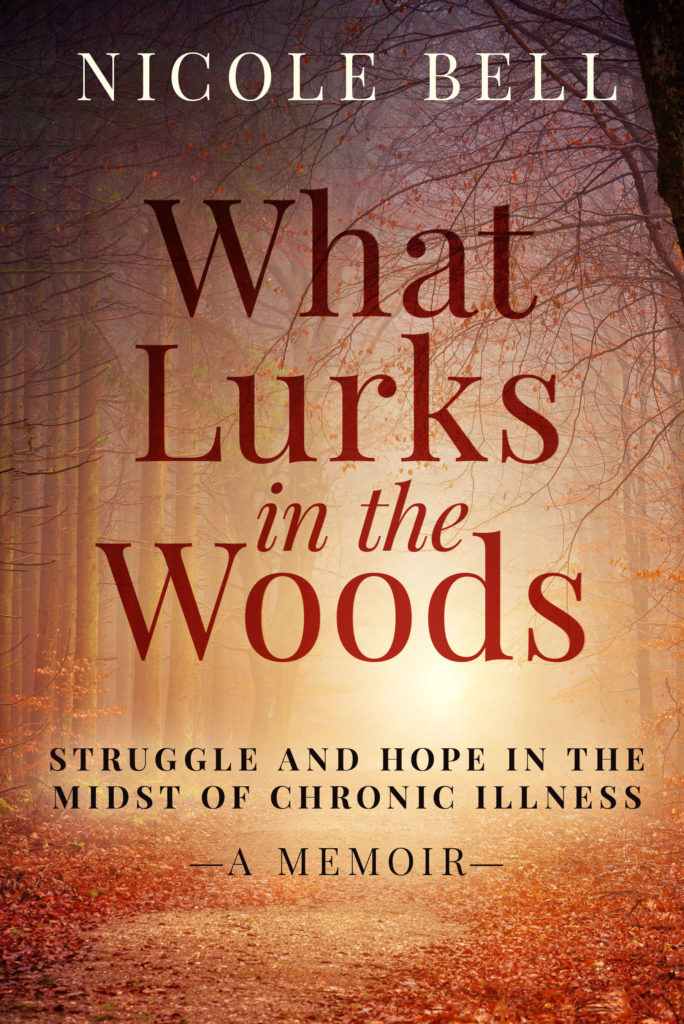
Can you tell us a bit about what drove you to write What Lurks in the Woods?
My husband’s illness was so devastating—it felt like our entire life was chaos. I’m an engineer and program manager, so I don’t sit well with chaos. To get some order and closure, I felt compelled to sort through the mess and figure out the lessons and learnings from our journey. Honestly, it started as a project for me and maybe someday my kids. But somewhere along the way, I realized that our story could help others, and then it took on even more meaning. If the book causes others to avoid our fate, then that will bring purpose to everything we went through.
What was your relationship like with your husband before he started having cognitive issues?
Russ was the smartest and most creative person I ever met. He was an engineer and a world-class guitarist, so he had this creative, left and right brain mix that was fascinating to watch. He was also hilarious and typically was the center of attention making everyone laugh. Since Russ is 20 years older than me, I never expected to fall in love with him, but he was so special, I couldn’t help it. We met while working together in a start-up and quickly became partners to make things happen for the business. That spirit ended up carrying over into our personal relationship, and we were a good pair supporting and pushing each other to grow and learn. There was a lot of fun and a lot of laughter.
How did it change?
Well, one of the things I loved about our relationship was that we never really argued. Since we were both engineers, we talked things out to see who had the better logic and often combined our ideas. But as Russ grew ill, it felt like we were fighting all the time, even about stupid stuff. I thought we were headed for divorce until I realized his arguments weren’t making sense, and he forgot basic things. Then I knew something more sinister was at play.
What do you want readers to know about the link between Alzheimer’s and tick-borne infections like Lyme disease?
I think the biggest “aha” moment for me was when I realized that Alzheimer’s isn’t a disease. It’s actually a symptom, much like a fever. Fever isn’t a disease. It’s the result of an upstream problem—the challenge is, which problem? What’s the root cause?
Alzheimer’s is similar, and a host of different root causes lead to neural degeneration. That’s why some people decline over decades and others, like Russ, decline so rapidly. It’s also why billions of dollars haven’t identified a single cure.
For decades, evidence has linked bacterial and viral infections to Alzheimer’s. As scientists are discovering the power of the microbiome, this “infection hypothesis” is becoming more mainstream. Borrelia, the bacteria causing Lyme, is known to infect neural tissue. Pathologists have found it in the amyloid plaques that are the hallmarks of Alzheimer’s. But recognizing Borrelia as a cause of Alzheimer’s has been clouded in politics, much like other good science on Lyme. Syphilis, another spirochete, is known to cause dementia, yet somehow Borrelia is controversial. It’s a tragedy because people can get better if diagnosed and treated sooner. When you read medical case reports, you’ll see many have been, but unfortunately, it still isn’t mainstream.
What is one thing you learned through this journey that you wish you’d known before and believe others need to know?
I’ve come to appreciate the intricate link between biochemistry and mental illness. My husband was the most rational, logical person I ever met, yet he literally went insane as his disease progressed, with hallucinations, rage, and massive anxiety. If we’d seen his early presentation of depression as a symptom, which is what it was, then our story would have unfolded differently.
It’s the same for other chronic symptoms. So often, we rationalize away pain, mood swings, fatigue, and other warning signs. We need to listen to our bodies and seek a functional medicine practitioner when things are off. Root causes are out there—but it’s up to us to seek them out.
What is next for you?
Well, right now, I’m focused on spreading the word on the book so it can make a difference for those suffering from tick-borne illness and/or dementia. As I’ve reached out and met folks in those communities, I’ve met amazing warriors, each with their own tragic story. Their encouragement and support have been a silver lining to all the mess of disease.
Long-term, I’d like to use my engineering background to help provide permanent solutions. I see significant gaps and needs in diagnosis, tracking, and monitoring, and I’d like to empower patients to own their health and wellness. That’s going to take technology to step in and sort all the information and lab work inundating us, which is a place where I think I can help.




